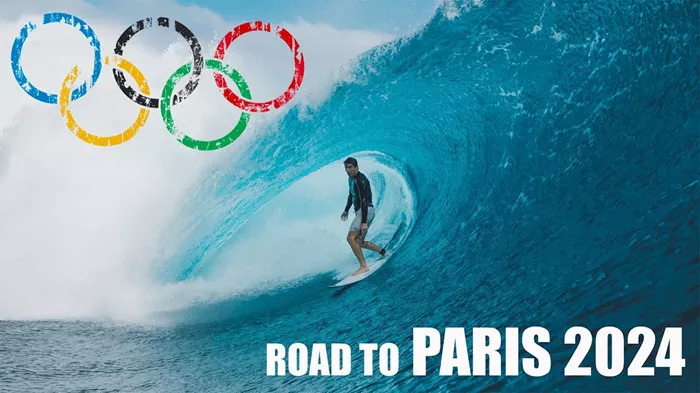Surfing‘s inclusion in the Olympic Games is a testament to its growing global appeal and recognition as a competitive sport. The decision to host Olympic surfing in Tahiti, a paradisiacal island in French Polynesia, has sparked curiosity and excitement. Tahiti, renowned for its world-class waves and stunning natural beauty, presents an ideal venue for the Olympics. This article delves into the reasons behind this choice, exploring the rich history of surfing, the exceptional waves of Tahiti, and the broader impact on the sport and local communities.
The Historical Significance of Surfing
Surfing’s Ancient Roots
Surfing, often referred to as the “sport of kings,” has deep roots in Polynesian culture, particularly in Hawaii and Tahiti. Ancient Polynesians, including Tahitians, were among the first to ride the ocean waves, using wooden boards crafted from local trees. This activity was not merely recreational but held spiritual and social significance, symbolizing harmony with nature and prowess.
Surfing’s Global Evolution
From its Polynesian origins, surfing spread globally, gaining popularity in places like Australia, the United States, and South Africa. The sport evolved with advancements in board design and wave-riding techniques, leading to the establishment of professional surfing circuits and events. The inclusion of surfing in the Olympics marks a significant milestone in its journey, reflecting its universal appeal and competitive spirit.
Why Tahiti? The Perfect Wave
Teahupo’o: A Surfer’s Paradise
Teahupo’o, a village on the southwest coast of Tahiti, is celebrated for its formidable and awe-inspiring waves. Known as one of the most challenging and dangerous surf breaks in the world, Teahupo’o offers consistent, powerful waves that attract elite surfers from around the globe. The wave’s unique formation, with its thick, hollow barrels breaking over a shallow reef, provides a spectacular and thrilling competition arena.
Ideal Surfing Conditions
Tahiti’s tropical climate and consistent swell patterns ensure optimal surfing conditions. The warm waters, combined with the island’s geographical position, create a year-round surfing haven. For the Olympics, these conditions guarantee a reliable and competitive environment for athletes, ensuring that the event showcases the highest level of surfing talent.
The Impact on the Sport
Raising Surfing’s Profile
Hosting Olympic surfing in Tahiti elevates the sport’s profile on a global stage. The dramatic and visually stunning waves of Teahupo’o captivate audiences, drawing attention to the athleticism and skill required to navigate such challenging conditions. This exposure is likely to inspire new generations of surfers and expand the sport’s fanbase.
Promoting Sustainable Tourism
The Olympics in Tahiti also highlight the importance of sustainable tourism. Surfing events attract visitors, boosting local economies, but they also come with environmental responsibilities. Emphasizing eco-friendly practices, such as minimizing plastic waste and protecting marine ecosystems, ensures that the natural beauty and resources of Tahiti are preserved for future generations.
Local and Cultural Benefits
Economic Opportunities for Tahiti
The influx of visitors for the Olympics presents significant economic opportunities for Tahiti. Local businesses, including hotels, restaurants, and tour operators, benefit from increased patronage. The event also creates jobs and promotes investment in infrastructure, leaving a lasting positive impact on the community.
Cultural Exchange and Preservation
Hosting the Olympics fosters cultural exchange, allowing visitors to experience Tahiti’s rich heritage. Traditional Polynesian ceremonies, crafts, and performances showcased during the event promote cultural understanding and appreciation. Moreover, the global spotlight on Tahiti helps preserve and celebrate its unique traditions and identity.
Challenges and Considerations
Ensuring Safety
Teahupo’o’s waves, while spectacular, are notoriously dangerous. Ensuring the safety of athletes and spectators is paramount. Advanced safety measures, including experienced lifeguards, medical teams, and contingency plans, are essential to mitigate risks and ensure a secure event.
Balancing Development and Preservation
While economic development is a positive outcome, it must be balanced with environmental preservation. Tahiti’s natural beauty and ecosystems are fragile and must be protected from the potential negative impacts of large-scale events. Sustainable planning and practices are crucial to maintaining the island’s pristine condition.
see also: Why Offshore Wind Is Ideal For Surfing
The Future of Olympic Surfing
Inspiring the Next Generation
The inclusion of surfing in the Olympics and the choice of Tahiti as a venue inspire young surfers worldwide. The visibility and prestige of the event encourage aspiring athletes to pursue their passion, potentially leading to a surge in participation and talent development in the sport.
Expanding Global Reach
Olympic surfing in Tahiti symbolizes the sport’s global reach and appeal. It highlights the diversity of surf locations and conditions, showcasing different styles and techniques. This inclusivity fosters a sense of unity and shared passion among surfers and fans from various backgrounds.
Conclusion
Olympic surfing in Tahiti is a celebration of the sport’s rich history, dynamic present, and promising future. The choice of Teahupo’o, with its legendary waves and breathtaking scenery, underscores the essence of surfing: a blend of skill, courage, and connection with nature.
related topics:

